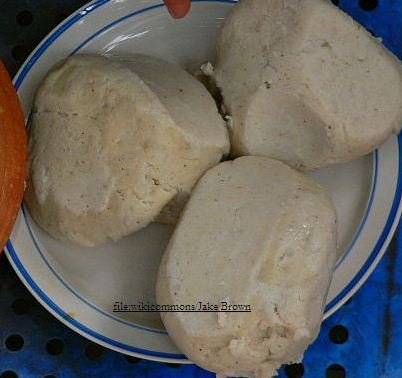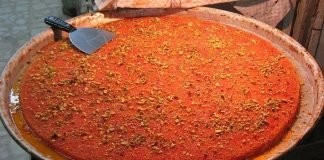Plakali is a traditional dish from Ghana, which is usually prepared using cassava flour. The delicacy is popular among the Nzema and Ahanta communities. Plakali almost resembles Banku only that the latter is prepared using fermented cassava flour. One striking fact that makes this particular dish unique is its amazing health benefits.
Before we delve into our recipe, get to know the health benefits of adding Plakali recipe to your diet first, and learn more about Ghanaian dining culture.
Plakali Recipe Health Benefits
- Cassava flour is rich in Vitamin C which helps strengthen bones
- Contains resistant starch which aids proper digestion
- Reduces inflammation
- Prevents bloating
- Highly starchy and used as a soup thickener
Ghanaian Dining Culture
Every society and culture has rules that must be observed when enjoying their food, and Ghana is not an exception. The Ghanaian culture is diverse and may vary from one ethnic community to another. Most Ghanaian dishes are spiced to bring out the real authentic African culinary art.
In Ghana, women take part in all the food preparation and serving. Children are not allowed to pound a dry mortar. Doing so is considered as beating their mother’s breasts – although it’s been proven that this myth was “manufactured” by Ghanaians elders to deter young ones from playing with mortar and pestle less they injure themselves.
Ghanaians like inviting visitors for feasts. All visitors are expected to leave their shoes outside as a sign of respect to the hosts. Food is eaten in a large communal bowl. Talking during meals is not acceptable unless it’s necessary. When served, you should be patient until the eldest male in the room start enjoying their food.
[bctt tweet=”In Ghana, children are not allowed to pound a dry mortar as doing so is presented as “beating their mothers breast””]
As it’s a common no-no in most Sub-Saharan African countries, food, gifts, and other items must not be handed over or received using a left hand in Ghana. Doing so is an insult to the other party.
Adhering to these dining rules creates a pleasant atmosphere, even for strangers. Going against these norms is viewed as being disrespectful, and it’s not tolerated.
Now, let’s get down to cooking Plakali.
Ingredients
Water
Cassava dough 1 pound
Salt
Procedure
- Put your cassava dough in a cooking pot and add water. Stir until you get a thick lump free mixture
- Place it on fire and add salt. Keep stirring until the mixture is thick.
- Cook for about 15 minutes on medium-low heat and make balls.
- Enjoy with palm nut soup or groundnut soup
If you like this Plakali recipe, you may also like





